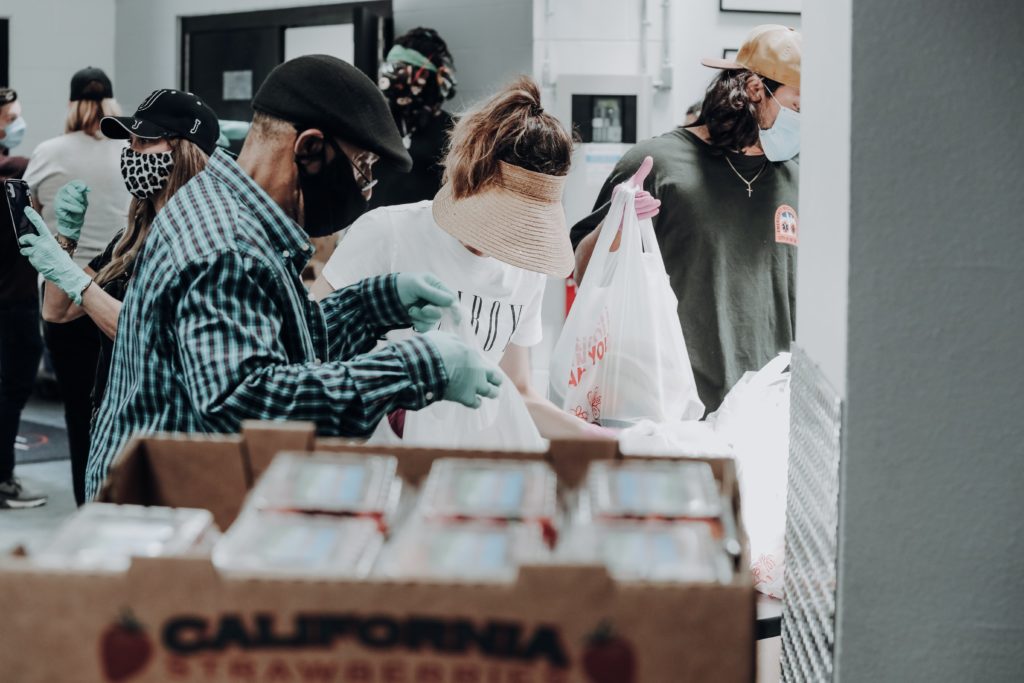

Impact of Power Service – How does Serving Others Help in the Healing Process?
Helping others is one of the most important ways to improve your mental health. It’s also one of the most effective ways to make yourself happy. In a study, researchers found that people who volunteer are 40% more likely to report being “very happy” than those who don’t volunteer. Another study found that people who volunteer have an increased sense of well-being and life satisfaction. They also have lower rates of depression, anxiety, and stress. Volunteering or serving is a powerful tool to connect us to each other and to ourselves. Serving one another is something that we learn from children to adulthood. It is a shift from egocentric thinking. There are many benefits to serving. Let’s dive into this blog to explore the benefits of serving others and figure out how serving others help in the healing process.
Loneliness & Serving
Loneliness is a social and emotional condition that can be defined as the feeling of isolation from one’s community or society. It can also refer to an individual’s lack of social connections or support. Loneliness is not a mental illness, but it does have an effect on mental health.
According to a recent study at Harvard Graduate School of Education, 36% of all Americans, including 61% of young adults and 51% of women with young children, experience “severe loneliness.” Loneliness appears to have increased significantly after the advent of the global epidemic, which is unsurprising.
Researchers have found three major areas that contribute to loneliness. Intimate relationships, personal relationships, and something bigger than yourself. Addressing each area helps you navigate loneliness. That something larger category can be attending a church, having a relationship with God, and serving. So helping others will help one area that contributes to overall loneliness.
Root Causes for Loneliness
The root causes of loneliness are not one size fits all. For some, it may be a lack of social interaction. Others may have a mental health disorder that is the cause of their depression or loneliness.


The first source of loneliness is isolation. Isolation happens when you are alone and don’t have any contact with other people or any way to communicate with others.
The second source of loneliness is not having any meaningful relationships. Meaningful relationships involve trust, shared values, and mutual goals.
You may think you don’t have any meaningful relationships, but sometimes it’s just hard to find the right people or the right time. Some people are afraid of relationships, and they may not feel ready for them yet. You might be too busy to meet new people because you’ve got school, work, and your family all on your plate.
Apart from the above-discussed root causes, the following factors contribute to loneliness:
- Childhood Trauma
- Social Media Addiction
- Depression and Anxiety Disorders
- Lack of communication with close friends and family members
- Feeling different from others in the society
- Physical Illness
- Lack of Social Skills
The Brain & Serving
When our brain is stressed, it will seek out things that release dopamine. Dopamine is released for a variety of things. Have you ever had a donut after a stressful meeting? The only problem with sugar is that it creates a very high dopamine hit. The sugar crash is real. But interesting enough, healthy food and serving others also create a dopamine release. This release is more natural and beneficial. There are no hard crashes from serving your neighbor, community center, or Church. So not only are you helping others by serving, but you also are helping your stress management.
Dr. Laurel Mellin, Founder of Emotional Brain Training (EBT), has researched the effects of Stress and how to heal from it. Laurel is the driving force behind EBT’s aim to help individuals rewire their emotional brains to solve problems with mood, relationships, habits, productivity, and health and achieve optimal well-being.
EBT is a new healthcare paradigm, the modern-day equivalent of CPR. EBT lays the groundwork for various types of self-care and healthcare to be more effective. Standard treatments (CBT, mindfulness, insight therapy) can be advantageous. Still, according to studies, they do not always address the amount of high-intensity and chronic stress.
People can cease overreacting in four minutes or fewer with EBT’s emotional approaches. In contrast, cognitive procedures can take up to 30 minutes to relieve stress.


Types of Services
A service is something that is done for someone else. It can be something as simple as hand washing or a more complex task like creating a website. Services are used in many different ways, but they all have the same goal: to make life easier for the person receiving them.
Volunteering can be very fulfilling – not only for the person receiving your help but also for yourself. The different types of services include mowing your neighbor’s yard, picking up trash, tutoring children in an after-school program, serving at a church, food pantry, etc.,
There are different ways to serve others in a time of loneliness, and that starts with learning how to be grateful for what we already have in our lives. The next step is to do something nice for someone else, like complimenting them or helping them with a task they need help with. When we start thinking about what makes us happy, it will make us feel better and stop feeling so alone. The next way is to take action in your community. You could volunteer or donate your time or money to an organization that helps others in need. This will help you feel like you are making a difference and connecting with people going through similar experiences.
How to Get Yourself Involved in Services?
There are many ways that people can give back to their community. The most common way people give back is by volunteering their time at a charity organization or other service organization. Some people volunteer their time, while others donate money or food.
The following are some ways to help yourself to get involved in services:
- Ask a friend or family member if they need help.
- Join a service league in your community
- Join a church or faith organization, etc.,


Concluding…
Service is a great way to give back because it’s not just about what you are doing for others; it’s also about what you are receiving from them in return. Service has been shown to have many benefits, including an increased sense of purpose and meaning, greater empathy, higher self-esteem, and decreased depression.
We are a part of families, communities, cities, nations, and global networks. We need each other. Choose serving not only because it’s good for your mental health; choose to serve because it is good for our world.


